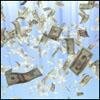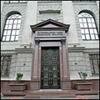Другие материалы рубрики «English»
-
 Opposition activists stage Chernobyl anniversary march in Minsk
Opposition activists stage Chernobyl anniversary march in Minsk
Opposition activists staged a traditional demonstration in Minsk on Sunday to mark the 29th anniversary of the Chernobyl nuclear accident... -
 Bruce Bucknell. Remember Crimea
Bruce Bucknell. Remember Crimea
A year ago, the Kremlin helped stage an illegal and illegitimate “referendum” in Crimea that culminated in Russia annexing Crimea from Ukraine...
- Zyanon Paznyak calls for preventing pro-Putin bikers from riding through Belarus on controversial road trip
- Biathlon Youth and Junior World Championships draw to close near Minsk
- US State Department’s envoy to visit Belarus this week
- Lukashenka meets with EEAS deputy secretary general
- EU foreign ministers, Brussels officials expected to visit Minsk soon
- Revelers in Minsk celebrate end of Butter Week
- Leaders of France, Germany, Russia, Ukraine arrive in Minsk for summit on Ukraine crisis
- United Kingdom’s Visa Application Center in Minsk moves into permanent office
- Minsk residents paying tribute to victims of Charlie Hebdo massacre in Paris
- Minsk adorned by New Year illumination
English
National Bank concerned about lending growth
The National Bank of Belarus (NBB) expressed concern during an enlarged board meeting on Friday that the country’s lending growth rate was too high, a financial expert told BelaPAN on condition of anonymity.
Forecast to increase by between 17 and 20 percent this year, lending to the real sector of the economy rose by 11.9 percent in the first six months, the expert said.
“The National Bank views this lending policy as too aggressive and warns that banks should aim for greater efficiency rather than faster growth,” he said.
Prime Minister Mikhail Myasnikovich said on June 11 that lending to the economy should be increased.
“There is clearly a conflict between the NBB, which seeks to maintain macroeconomic stability, and the Council of Ministers, which is responsible for the growth of Gross Domestic Product [GDP],” the expert said.
The government projected a GDP growth of 8.5 percent for this year, but the National Statistical Committee reported a 1.4-percent year-on-year increase in the first six months. In 2012, Belarus’ GDP grew by 1.5 percent.
In an interview with BelaPAN, Dzmitry Kruk of the Belarusian Economic Research and Outreach Center, described the 8.5-percent GDP growth target as completely unrealistic, considering that interest rates on rubel loans had risen from the NBB’s base refinance rate plus about five percentage points at the end of June to the base refinance rate plus between 10 and 15 percentage points in July. Banks raised their interest rates on rubel loans because rubel deposits had become more profitable.
Experts predict that interest rates on rubel deposits will remain high to prevent people from withdrawing their savings.
“Economic growth will probably be sacrificed for the sake of the stability of the national currency,” independent expert Feliks Charnyawski told BelaPAN. “Otherwise, we may have another devaluation of the rubel and soaring inflation. One way or the other, banks will have to set high interest rates.”




В настоящее время комментариев к этому материалу нет.
Вы можете стать первым, разместив свой комментарий в форме слева